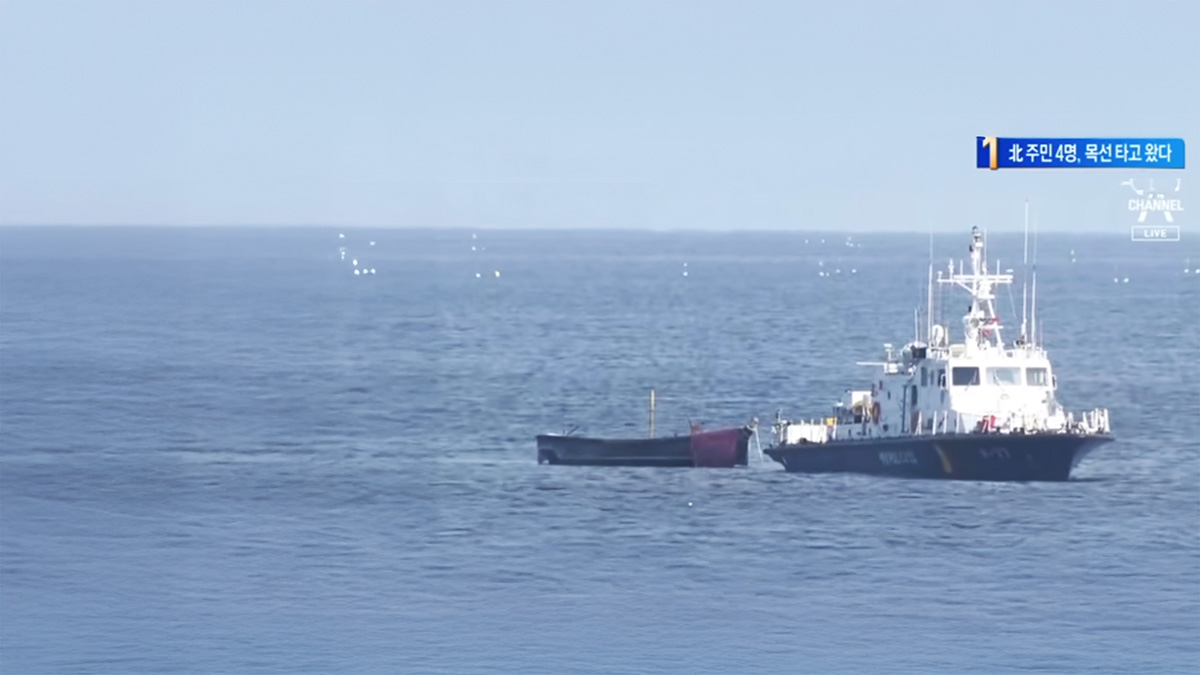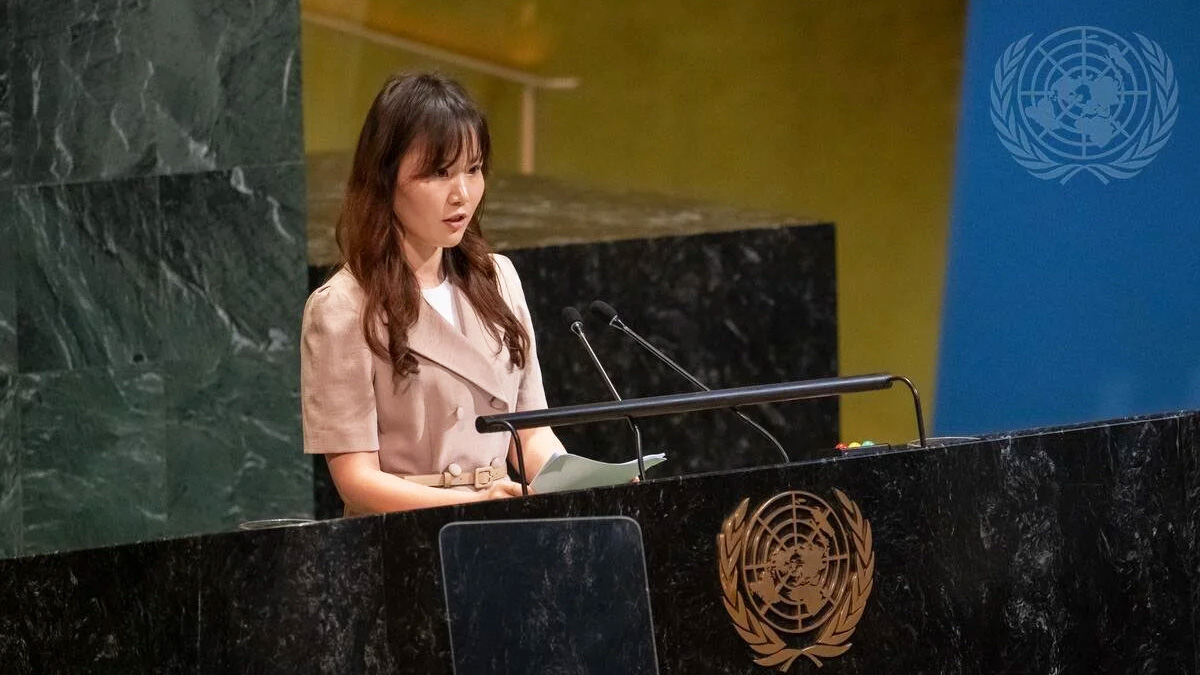How North Korean People are Changing North Korea
Sometimes this issue seems hopeless. But we believe that all North Koreans can achieve their freedom in our lifetime. Here’s why.

For decades, the North Korean people have been deprived of their basic human rights and potential. The regime has maintained control through a system of imposed isolation, relentless indoctrination, and brutal repression, creating one of the most closed societies in the world. The result is an all-encompassing enforced poverty, including material, physiological, social, informational, artistic, and spiritual deprivations.
In 2014, the United Nations Commission of Inquiry on Human Rights in North Korea concluded: “The gravity, scale and nature of these violations reveal a state that does not have any parallel in the contemporary world.”
In recent years, the pandemic has triggered another increase in isolation, hardship and repression.
Despite these tremendous challenges, the North Korean people have made significant progress toward their own freedom. In the 1990s, North Korea’s socialist economy collapsed, triggering a devastating famine and leaving the people to fend for themselves. Bottom-up market activity is changing North Korea and forcing the gradual opening up of North Korean society.
> The History of North Korea in under 3 minutes
Marketization and Emerging Entrepreneurs
Once the people realized they could no longer rely on the government, they abandoned their defunct work units and turned to private market activities. From selling home cooked meals to running extensive trade businesses, North Koreans have become incredibly creative and resourceful to survive. The markets central to these activities are known as the “Jangmadang,” and to this day, North Korean refugees regularly report that life would be impossible without them.
> The Jangmadang Generation

The famine forced people at all levels of society to find alternate ways to survive. Many government officials seized opportunities for camouflaged capitalism to enrich themselves personally. Even security officials accommodated the markets, accepting bribes to turn the other way and allow access to the Chinese border for trade. This corrupt state apparatus has further degraded the integrity and power of North Korean leaders.
Foreign Media & Info
The growing market economy has also created opportunities for foreign media and information to proliferate in North Korea.
First, the movement of people has significantly increased since the 1990s. Hundreds of thousands of North Koreans have now been outside the country for legal or illegal work and trade, in addition to refugees who were caught in China and forcibly repatriated. Observations from overseas are commonly shared through word of mouth and quickly spread through communities.
Additionally, new information technologies are increasingly available through the markets, making it easier to share and consume illegal foreign media. USB thumb-drives, SD and MicroSD cards, mobile phones, laptops and small portable media players are often loaded with foreign films, TV shows, and music that offer a glimpse of life outside.
> How Kpop is Challenging the Regime
Individual Agency & Independence
Since the collapse of the 1990s, the relationship between the North Korean people and the regime has been fundamentally changed. The people’s increasing economic autonomy has challenged the government’s centralized power and systems. Simultaneously, access to foreign media and awareness of life outside the country has eroded the legitimacy of the regime’s propaganda. The North Korean people have found opportunities to explore their potential, empowered to think and act independently of the regime.

North Korean Defectors
As North Koreans gain both physical and psychological independence from the regime, some will risk their lives to escape and experience freedom. Since crossing the heavily fortified demilitarized zone directly to South Korea is nearly impossible, many refugees go north into China while escaping North Korea.
North Korean defectors who successfully resettle become some of the most effective agents of change on this issue. Many maintain contact with their home communities through broker networks and smuggled Chinese phones. They send money back to their families along with first-hand accounts of the outside world, accelerating both market activity and the flow of information.

From the outside, North Korean refugees have the opportunity to share their stories on the international stage. Their personal accounts challenge the regime’s narrative of an unchanging and monolithic North Korea, instead highlighting the humanity and dynamism of the people. As they explore their potential in the free world, North Korean refugees increase the force of change through both internal and external influence.
> How A North Korean Defector Sends Money Back Home
Change from the Bottom-Up
While the situation in North Korea is changing, the government’s mastery in maintaining social control should not be underestimated. The regime’s response has ranged from crackdowns to tacit acceptance and reform. North Korean leader Kim Jong-un recognizes the trade-off between change and maintaining control, and has allowed limited marketization while cracking down on information flows.

Ultimately, however, the sources of change can only be managed, not eliminated. As the North Korean people learn more about their relative poverty and the reasons for it, pressure will build on the government for economic reform. The less the North Korean people fear the outside world, the less effective the government’s threat narrative will be, and the less justified their massive investment into nuclear weapons will seem.
The regime will either need to adapt to change and allow opening of the country, or ultimately face the consequences of increasingly dissatisfied people.
It is important to note that progress in North Korea is a fluctuating process, as it is anywhere else in the world. During the pandemic, there has been increased isolation, retrenchment, and a limited outflow of people. The situation at hand is dire, but we can still be optimistic about long-term outcomes and an overall upward trend towards progress.
Liberty in North Korea
Our staff from North Korea, South Korea, and around the world, with our diverse movement of supporters and volunteers, is committed to bringing freedom forward for all North Korean people.

We’re engaged at multiple touchpoints of change:
- Helping North Korean refugees reach safety
- Identifying and empowering North Korean agents of change
- Mobilizing international support for the North Korean people
- Working with North Korean defectors to develop content and technologies that increase the people’s access to information
Our theory of change recognizes that change in North Korea has already started, and it is being driven by the people. One day, all North Koreans will gain their freedom and take full authorship over their lives. When that day arrives, we will know that we were a part of helping North Koreans in this incredible story of resilience and human progress against all odds.
A North Korean Refugee’s Daring Escape By Boat | Gyuri Kang’s Story
Escaping from inside North Korea remains almost impossible today. Borders remain sealed by the legacy of pandemic-era restrictions, while surveillance in China continues to intensify. But in 2023, a group of North Koreans crossed into South Korean waters on a small fishing boat—a rare and extraordinary way to reach freedom. Abroad the vessel was 22-year-old Gyuri Kang with her mother and aunt.

You were never supposed to know my name, see my face, or hear my story. Because I was one of 26 million lives hidden inside North Korea.
I was born in the North Korean capital, Pyongyang. The first time the government decided my future without my consent, I was only a child. My family was exiled to a rural fishing village because of my grandmother’s religion.
In the system we were living in, not even your beliefs or thoughts are truly your own.
On my way to school, youth league officers would inspect my clothes and belongings, punishing me for even a hairpin or a skirt that was a few centimeters too short. At school, we were taught that “we live in the most dignified nation in the world,” but outside those walls, people were collapsing from hunger in the streets.
Careless words overheard by a neighbor could turn into a knock at the door in the middle of the night. The radio played government broadcasts all day long, and searching other frequencies was a risk no one dared to take. This is how the North Korean government maintains control over people. By convincing you that survival depends on submission.

I returned to Pyongyang as an adult. I majored in table tennis at the Pyongyang University of Physical Education and imagined myself making a new life, built on talent and hard work.
But reality was nothing like what I had dreamed. I came to understand a deep, painful truth: In the end, everything was determined by how well you obeyed, not how hard you worked.
Frustration and emptiness built up until I finally decided to leave Pyongyang.
I wanted to help support my mother and aunt, so I moved to the coast to try and build a life of my own. My mother used all of her hard-earned life savings to buy me a small wooden fishing boat so I could start a business harvesting clams.
That boat was more than a way to make a living. It was a daily reminder of her sacrifice, and the depth of their love and trust in me. If the money I earned with my own hands could put even one less wrinkle on her forehead, that was enough for me.

As a boatowner, I woke up early in the mornings to prepare supplies, get the crew together, and encourage them. I inspected the condition of the boat and hired people to help fix the engine and other faulty parts. Although I couldn’t go out to sea because I’m a woman, I was responsible for ensuring the ship operated smoothly.
But the harder I worked, the more government officials came to me—demanding baskets of clams and money. They justified their demands by saying: “The Party orders it,” threatening to punish anyone who refused. Every night I agonized over how to protect my people and keep my business going, and how I should respond. In those moments, I would remember the love and devotion my mother and aunt had poured into me and it gave me strength to persevere.
To escape my reality, at night I secretly watched South Korean TV shows on a television that was smuggled in from China.
My world turned upside down. With my friends who were also watching South Korean media, we would cautiously express our dissatisfaction together while also copying the hairstyles and outfits we saw in dramas. Sometimes, we would even try to mimic South Korean words or accents when talking or texting together.
But under Kim Jong Un, punishments became much more severe. Two people I knew were executed for watching and sharing foreign media. Our lives became harder, control over young people became more intense, and our resentment began to grow.

But no matter how much they tried to repress us, frustrated young people like me continued watching forbidden content as a way to forget reality. Foreign media has quietly found its way into North Korea for decades. As I grew up, it began spreading more than ever before, through USBs passed between friends or broadcasts picked up on illegal devices.
Many defectors, like me, can remember the exact episode of a TV show, a specific South Korean song, or even a traffic report, that planted the first seeds of doubt.
Of course, dramas and movies don’t tell the whole story, but they show a life that contradicts everything we were taught. And it makes you wonder: if life is so different out there, why does it have to be this way here?
I realized it doesn’t just show people that different lives exist. It gives them the belief that their life could be different. And that belief gives people the courage to choose a different future.
The thing about information is once you learn something, you cannot unlearn it. I remember watching people on my screen speak freely, laugh openly, and pursue their dreams—things that were unimaginable in North Korea. For the first time, I wondered if everything we were taught might be wrong. That doubt led to questions, and my curiosity became too strong to ignore. Now that I had seen the truth, I could never go back to the person I was before.

Escaping North Korea cannot be explained by the simple word “leaving.” This was especially true for me because I escaped together with my mom and my aunt. They had placed their trust in me when they gave me money for that boat. And now I was placing my trust in that boat to carry us across the sea to freedom.
I planned our escape in complete secrecy.
I bought a smuggled GPS device from China, carefully traced our route, observed the currents and tides, learned the patrol schedules of the guard boats, and figured out the blind spots of the coastal guard posts. I meticulously checked the condition of the boat and quietly prepared all the food and supplies we would need. I trained my body for the wind and the waves, and my mind for the terror of being caught.
Some nights I woke up in a panic. Other times my confidence crumbled and I thought, maybe I should give up and just accept the life I have. But in those moments, I imagined what waited at the end of the journey.
I wasn’t leaving just to stay alive. I was leaving so that I could live like a human being.
On the night we left, we climbed into my boat and pushed off into the dark water. I gripped the rudder and let the current carry us south, carefully navigating around the guard posts and patrol boats who were on the water looking for people like us.

I knew what would happen if we were caught. Arrest. Endless investigations. Humiliation. Public trials. Political prison camp. And the possibility that I might lose the people I loved most in the world.
My mother and aunt were trembling with fear. I had to hide my own fear to tell them what I could only hope. We will survive. We spent the night being tossed back and forth on the East Sea. Black waves lifted our boat like a toy before smashing it down again. Every crash sent water over the sides and threatened to swallow us up.
Suddenly, a patrol ship appeared. Its lights stabbed the water, blinding us, and started coming closer and closer. It was coming for us. My chest pounded so hard I felt it might burst. I thought of the sleeping pills we had brought.
We had agreed that if capture became inevitable, we would rather take our own lives. It was a fate we preferred to execution or prison camps. As the coast guard closed in, I wondered, is it time for the pills?
But I refused to give in. We were so close. I steered away from the searchlights, surrendered the boat to the churning water, and pushed on forward.
Suddenly, the patrol vessel stopped and turned back around. They could no longer chase us. We had reached the maritime border. The sea calmed, as if it was welcoming us to freedom. And as the sun rose, we saw the outline of land.
A South Korean fisherman, hearing radio reports that North Korean patrols were in pursuit, realized we were the boat being chased. He steered his boat toward us and said, "Welcome. You are safe now."

It’s been almost two years since we arrived in South Korea.
I still remember moving into our apartment and using a showerhead for the first time, experiencing hot water flowing straight from the tap. I couldn’t believe it. That day, my mother, my aunt and I took turns showering, laughing, and saying to each other, “So this is what a human life feels like.”
For the first time in my life, I could choose my studies, my job, my clothes, my hobbies—even the way I spoke—for myself. It felt like an entirely new world. We were being reborn, leaving behind a past of silence and control for a life with dignity and a future we could choose ourselves.
My mother began studying for a professional certification. And my aunt enrolled in social welfare classes to help others. I studied hard and was recently accepted into Ewha University. I have also been active in North Korean human rights activism and I even started a YouTube channel to show the world what it looks like to start a new life in South Korea.

Hope is dangerous for the North Korean government. Millions of people live with anger and sadness, but even more live in resignation. Most do not realize their rights are being violated—they don’t know what “rights” are. I once believed it was normal for the state to control every part of our lives. I thought every country lived this way.
But the moment you realize life could be different, hope begins to take root. And once hope exists, change is no longer unimaginable.
My dream is that someday North Korea will be a place where young people choose their own paths, where no one is punished for their words, and where every person lives as the true owner of their life. While so much of North Korea’s reality is dark, change is already happening. And what sparks that change is information. A single truth from the outside world, a glimpse of what life could be, can plant a seed of doubt, or ignite a spark of hope.
That’s why I speak out. If I don’t tell my story, who will tell it for me? If I stay silent, will the death of my friends, and the suffering and starvation my family endured be forgotten?
Right now, in North Korea, there is someone just like me—sitting in a dark room, secretly watching a South Korean broadcast, quietly wondering: Could I also live like that?
I want my story to prove that this hope can become a reality. I want to stand in the middle of that change. Not just as someone who escaped to enjoy freedom, but as someone determined to one day share that freedom with all North Korean people.
Freedom is not given, but it is something we can achieve. With your support, we can write a future where all North Korean people are free.
Foreign media gave Gyuri a glimpse of the outside world—and the courage to seek freedom.
Increasing North Korean people’s access to outside information is one of the most effective levers for change in the country. And that is exactly what we’re doing at Liberty in North Korea
In partnership with North Korean defectors and engineers, LiNK develops tailor-made technology, tools, and content that help people inside the country access more information more safely. These glimpses into the wider world build people’s resilience to the regime’s propaganda, and emboldens them to imagine a different future for themselves and their country.
Help fuel work that’s directly supporting North Koreans driving change on the inside.




